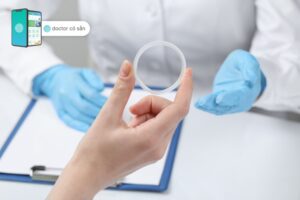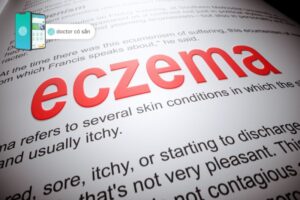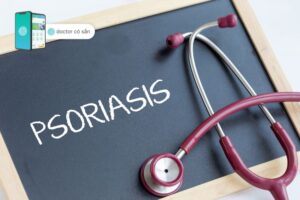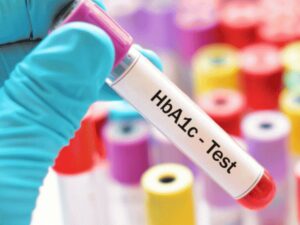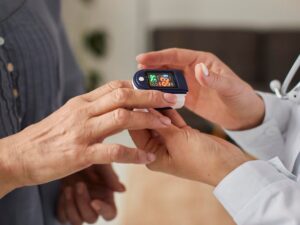Sexually transmitted diseases (STDs) and who is at risk of STD are a constant concern for many people across various countries, particularly in Vietnam. Recognizing the danger of these diseases and the need for information about them, Docosan aims to help readers find answers through the article below.
Tóm tắt nội dung
Check and detect STD at home with Docosan
STD are highly sensitive and delicate illnesses, which can make people at risk of these diseases afraid to visit clinics and hospitals. In addition, they may fear being judged by others if their test results come back positive. These problems have caused many people to neglect testing altogether and adopt a “live or die without knowing” mentality, which can allow the disease to progress to a more severe stage.
Recognizing the importance of private and secure health checkups while ensuring accuracy, Docosan provides Common STDs Panel that can be used at home. This solution allows patients to test for diseases in the comfort of their own homes, without having to travel to a medical facility or fear being judged by others.
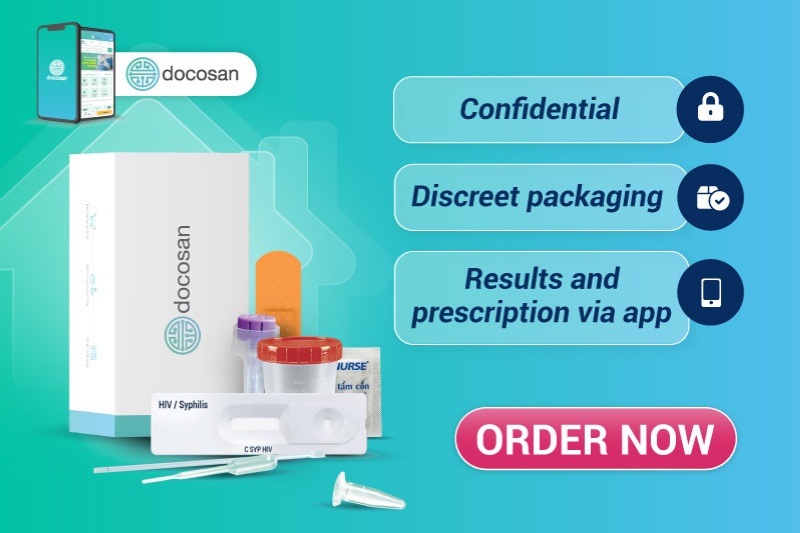
At Docosan, we ensure that we provide products with high security, safety, and accuracy. You can easily use our products anywhere with a simple process and get results within 15 minutes. Additionally, if you receive a positive result, you will be consulted by your doctor for treatment.
The level of danger of STD you should not underestimate
STD is a term used to refer to diseases that can affect an entire society due to their ability to spread quickly and dangerously. Sexually transmitted diseases are mainly transmitted through unprotected sex. Other diseases can be transmitted through blood, from mother to child, or through indirect contact.
This is a group of diseases that cause many dangerous health effects to patients and threaten the community such as:
- Impaired reproductive function: Unprotected sex has many potential pathogens that affect reproductive function. Both men and women are likely to have the associated disease.
- The patient’s psychology is prone to crisis: If diagnosed positive for one of the STDs, the patient is very likely to fall into crisis and stress. Because there were no symptoms of disease before the test, the patient was surprised, did not know how to face the disease and was afraid of worrying about relatives.
- Pregnant women face many negative impacts: Pregnant women with STDs are at high risk of having a miscarriage, infecting the fetus, giving birth prematurely, having an ectopic pregnancy, etc. If they can develop normally, there is still a high risk of birth defects.
- Spread and endanger the community: STDs have a fast rate of spreading to the community. Many diseases are also life-threatening.

Who is at risk of STD?
Since STDs are sexually transmitted diseases, anyone who has had sex is at risk. Subjects at higher risk of STDs include:
- People who have unprotected sex
- People with many lovers
- Prostitutes, prostitutes
- People who use drugs, especially those who share needles
- People who have sex with men (male – male)
- Patients receive blood from people with STDs
- Newborns whose pregnant mothers have the disease
- People sharing personal items with sick people: toothbrushes, underwear, syringes, razors, etc.

According to recent statistics, adolescents and young adults between the ages of 15 and 25 are at a high risk of contracting sexually transmitted infections. Women are particularly vulnerable to these infections, with a higher risk than men. This is especially true for young women who engage in frequent and rough sex, which can damage the vaginal mucosa and make it easier for infectious agents to enter the body.
What should be done to prevent the transmission of STD?
Most sexually transmitted diseases are difficult to detect based on clinical symptoms alone. STDs can be detected through medical testing and examination at a healthcare facility. Delayed disease detection not only makes the disease difficult to treat, but also increases the likelihood of spreading to other people. Therefore, it is important to seek medical attention and get tested if you suspect you have been exposed to an STD.
Besides wondering who is at risk of contracting a STD, you also need to know some measures to prevent the spread of this disease:
- Building a healthy sex life, faithful monogamy.
- Use condoms during sex to prevent infection.
- Clean genitals before and after sex.
- Both should be tested for STDs before having sex to make sure that both of them are healthy.
- Talk to your partner about prevention of STDs and pregnancy. If you think you’re ready, you need to take steps to protect your body.
- Periodic health check-up 1-2 times/year to detect disease early. Especially, women need to have regular gynecological examinations, detect infections and be advised by doctors about safe contraceptive methods.

The article above has clarified who is at risk of STDs. This information will hopefully help you understand what to do if you suspect you have been infected. Furthermore, it is important for you and your community to educate yourselves about sexually transmitted diseases in order to protect yourselves and your loved ones.
The article is consulted from doctors and reliable domestic and foreign sources.



